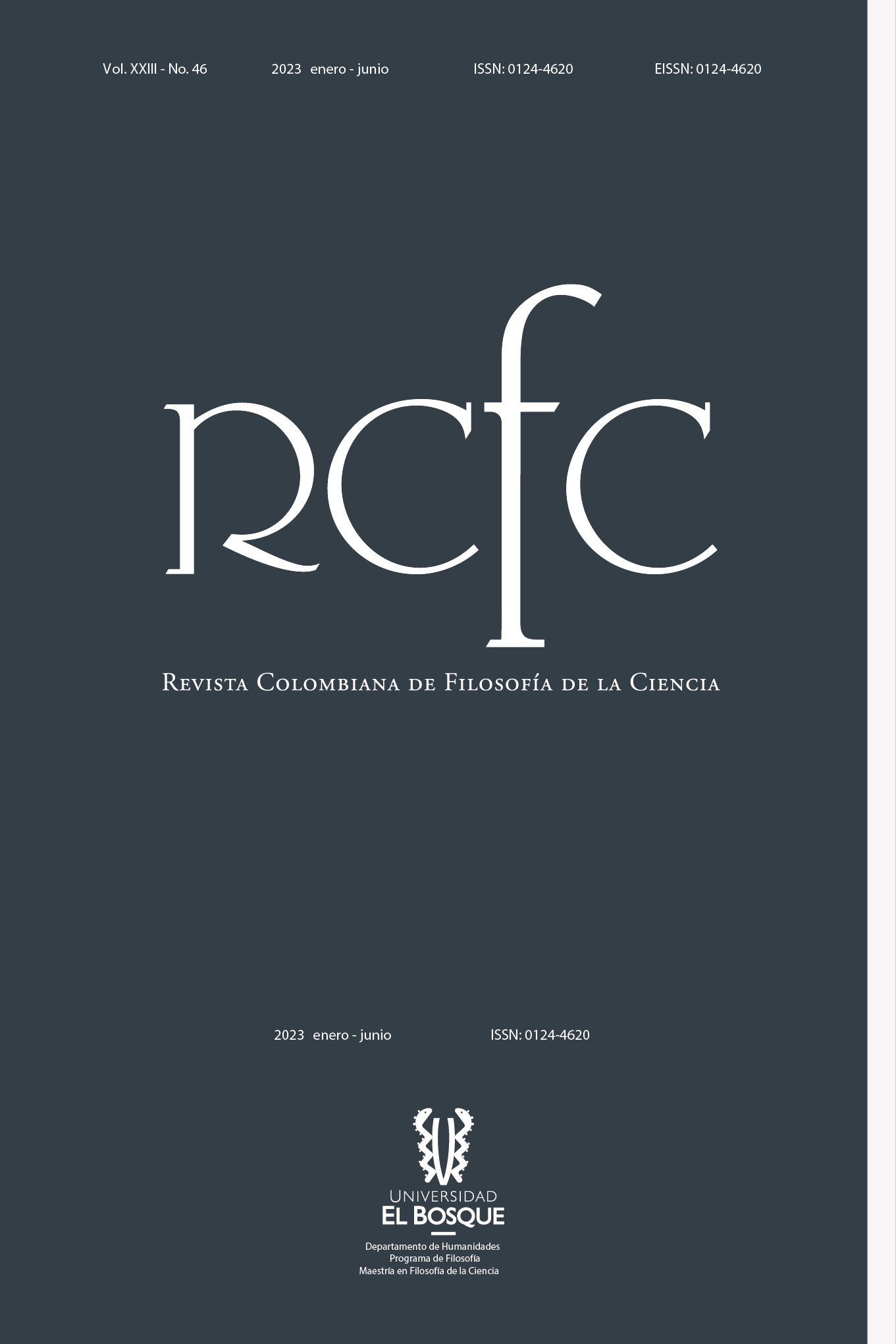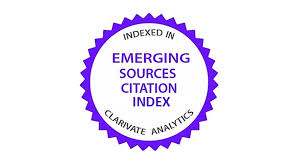Metaphysical and Epistemological Aspects in Human Nature and Human Identity
DOI:
https://doi.org/10.18270/rcfc.v23i46.4183Keywords:
human nature, human identity, species, humanity, typology, phylogenyAbstract
Starting with a general presentation of the concept of species as applied to humans, this text presents two general notions of human nature: typological and phylogenetic. Once the foundations of each notion have been exposed, a distinction is defended between human nature and human identity as two aspects that have been confused with respect to this problem, but that play different roles in the explanations, so they are proposed as two complementary notions. Thus, human nature would be defined in metaphysical terms and would account for the biological reality of humans from a phylogenetic point of view, while human identity would be defined in epistemological terms and would account for the knowledge that humans have about themselves, alluding to contingent aspects.
Downloads
References
Blatti, Stephan. “Animalism” The Stanford Encyclopedia of Philosophy. 2020. Ed. Edward N. Zalta <https://plato.stanford.edu/archives/fall2020/entries/animalism/>
Blatti, Stephan., y Snowdon, Paul F. Animalism New Essays on Persons, Animals, and Identity. Oxford: Oxford University Press, 2016. <https://doi.org/10.1093/acprof:oso/9780199608751.001.0001>
Boyd, Richard. “Realism, Anti-Foundationalism and the Enthusiasm for Natural Kinds”. Philosophical Studies: An Interational Journal for Philosophy in the Analityc Tradition 1.61 (1991): 127-148. <https://doi.org/10.1007/bf00385837>
______ “Homeostasis, Species and Higher Taxa”. Species: New Interdisciplinary Essays. Ed. Robert Wilson. Cambridge: MIT Press, 1999. <https://doi.org/10.7551/mitpress/6396.003.0012>
Caponi, Gustavo. “Tipología y filogenia de lo humano”. Ludus Vitalis 20.37 (2012): 175-191. <https://acortar.link/F2vgx5>
Casetta, Elena. y Vecchi, Davide. “Species are, at the Same Time, Kinds and Individuals: a Causal Argument Based on an Empirical Approach to Species Identity”. Synthese 198.12 (2021): 3007-3025. <https://doi.org/10.1007/s11229-019-02199-5>
Cela-Conde, Camilo. y Ayala, Francisco. “The Advent of Biological Evolution and Humankind”. On Human Nature: Biology, Psychology, Ethics, Politics, and Religion. Ed. Michel Tibayrenc y Francisco J. Ayala. London: Elsevier, 2017. <https://doi.org/10.1016/B978-0-12-420190-3.00001-6>
Diéguez, Antonio. La vida bajo escrutinio. Barcelona: Biblioteca Buridán, 2012.
______ “Concepto fuerte de naturaleza humana y biomejoramiento humano”. Técnica y ser humano. Ed. José Sanmartín y Raúl Gutiérrez. Ciudad de México: Centro de Estudios Filosóficos, Políticos y Sociales Vicente Lombardo Toledano, 2017a.
______ Transhumanismo. Barcelona: Herder, 2017b
Ghiselin, Michael. Metaphysics and the Origins of Species. New York: State University of New York Press, 1997.
Heyd, David. “Human Nature: An Oxymoron?” Journal of Medicine and Philosophy 28.2 (2003): 151-169. <https://doi.org/10.1076/jmep.28.2.151.14205>
Hull, David. “Are Species Really Individuals”. Systematic Zoology 25.2 (1976): 174-191. <https://doi.org/10.2307/2412744>
______ “A Matter of Individuality”. Philosophy of Science 45.3 (1978): 335-360. <https://doi.org/10.1086/288811>
______ “Indivituality and Selection”. Annual Review of Ecology and Systematics 11.1 (1980): 311-332. <https://doi.org/10.1146/annurev.es.11.110180.001523>
______ “On Human Nature”. PSA: Proceedings of the Biennal Meeting of the Philosophy of Science Association 2.1 (1986): 3-13. <https://www.doi.org/10.1086/psaprocbienmeetp.1986.2.192787>
Lewens, Tim. “Human Nature: The Very Idea”. Philosophy & Technology 25.4 (2012): 459-474. <https://www.doi.org/10.1007/s13347-012-0063-x>
Locke, John. An Essay Concerning Human Understanding. Trad. E. O’Gorman. México D.F.: FCE, 1999 (1690).
Machery, Edouard. “A Plea for Human Nature”. Philosophical Psychology 21.3 (2008): 321-329. <https://www.doi.org/10.1080/09515080802170119>
Nagel, Thomas. Mind and cosmos. Why the Materialist Neo-Darwinian Conception of Nature Is Almost Certainly False. Oxford: Oxford University Press, 2012.
Nussbaum, Martha. Frontiers of Justice. Disability, Nationality, Species Membership. Cambridge: Harvard University Press, 2006. <https://doi.org/10.2307/j.ctv1c7zftw>
Okasha, Samir. “Darwinian Metaphysics: Species and the Question of Essentialism”. Synthese 131.2 (2002): 191–213. <https://www.doi.org/10.1023/A:1015731831011>
Orellana Benado, Miguel. “Negociación moral”. Causas perdidas. Ed. Miguel Orellana Benado. Santiago: Catalonia, 2010.
_______ Prójimos lejanos. Santiago: Ediciones UDP, 2011.
Popper, Karl y Eccles, John. The Self and It Brain. An Argument for Interactionism. London: Routledge, 1977. <https://doi.org/10.1007/978-3-642-61891-8>
Ramsey, Grant. “Human Nature in a Post-Essentialist World”. Philosophy of Science 80.5 (2013): 983–993. <https://www.doi.org/10.1086/673902>
Rojas Mix, Miguel. América imaginaria. Santiago: Erdosain-Pehuén, 2017 (1992).
Roughley, Neil. “Human Nature”. The Stanford Encyclopedia of Philosophy, 2021. Ed. Edward N. Zalta <https://plato.stanford.edu/archives/spr2021/entries/human-nature/>
Samuels, Richard. “Science and Human Nature”. Royal Institute of Philosophy Supplement 70.1 (2012): 1-28.
Scruton, Roger. On Human Nature, Princeton: Princeton University Press, 2017.
Willmore, Katherine. “The Body Plan Concept and Its Centrality in Evo-Devo”. Evolution: Education and Outreach 5.2 (2012): 219-230.

Downloads
Published
How to Cite
Issue
Section
License

This work is licensed under a Creative Commons Attribution-NonCommercial-NoDerivatives 4.0 International License.

| Article metrics | |
|---|---|
| Abstract views | |
| Galley vies | |
| PDF Views | |
| HTML views | |
| Other views | |










